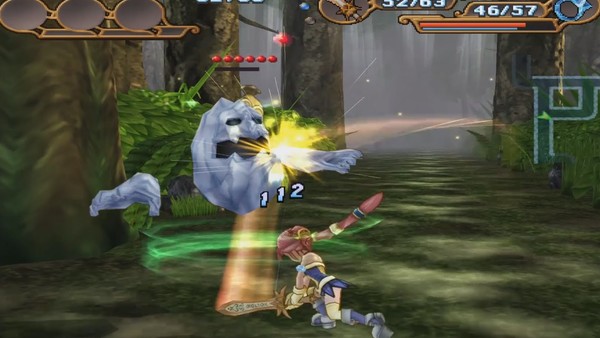The Evolution Of The JRPG
How Much Higher Could The Rising Sun Go?

At the turn of the century, it'd be fair to say that both Sony and the JRPG were riding high. The former with its substantial catalogue on its first console, as well as making ground with the PS2, and the latter with what it could bring on the next evolution of console.
It wasn't just Sony though, as Sega's next foray, the Dreamcast, saw some killer titles in Skies of Arcadia and a timed exclusive sequel to Grandia. But Sega, for all their faults, wanted to go a different direction.
Remember Phantasy Star, mentioned earlier? Well, whilst the early days of the series may not be familiar to you, you may have heard of Phantasy Star Online. This Dreamcast title and its sequel are considered the first proper JRPG's, and with good reason. Again, like the genre that bore them, it took the focus away from the Westernised, PC-centric nature of online gaming and brought that luxury to the home console. The Dreamcast may not have had the longevity, but it certainly had the innovation. Oh, and Shenmue, I suppose.
But the market for the format was definitely in PlayStation's favour. The Eastern audience wasn't very receptive to Microsoft's flagship console, the Xbox, and as such it stuck to more Western RPG's. It did have some corkers that borrowed elements of JRPG's, such as Bioware's Jade Empire, as well as ports of the aforementioned Phantasy Star Online's. All eyes were on Sony to deliver.
To which they did, to an extent. We saw the tenth iteration of the [by this point] ironically named Final Fantasy's land in 2001 to rave reviews, as well as continuations from the Dragon Quest, Suikoden and Star Ocean stables. The Shin Megami Tensei spinoff Persona was also gaining traction, with its third installment releasing to critical success alongside its forebear.
Yet by the early 2000's, turn-based combat was becoming stale. Whilst games like Vagrant Story and Parasite Eve were smash hits on the previous PlayStation, the notion of any kind of sequel quietly dropped off into obscurity and rumour.
Long-running Capcom series Breath of Fire effectively killed itself with fifth title, Dragon Quarter, by being too divergent from the norm, whereas hybrid adventure/RPG series Dark Cloud came and went with two titles.
People wanted innovation, but they also fear a dramatic change.
Something needed to happen - something as obscure and random as a chance meeting in an elevator...